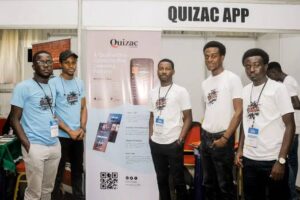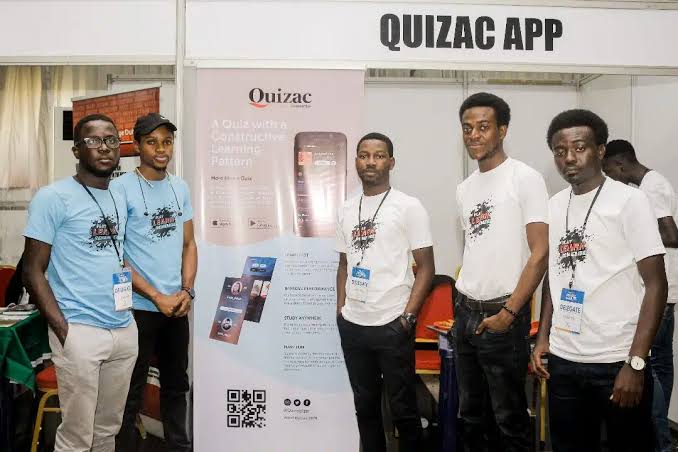Four ambitious individuals embarked on the journey of founding Quizac in 2019, driven by the pressing need to enhance educational engagement in Africa, where a significant portion of children and youth lack access to quality education.
The startup focused on gamified learning and quickly gained traction, attracting over 12,000 learners from 90 countries, predominantly in Nigeria. Yet, despite its initial success, the company faced insurmountable challenges that led to its imminent shutdown.

Recognizing the potential of smartphone penetration in Nigeria and the innate appeal of video games to children, Quizac effectively harnessed these factors to create an engaging gamified learning platform similar to Duolingo but with a broader curriculum. Content for the platform was crowd-sourced and meticulously vetted, reflecting a collaborative effort involving contributors from Nigeria, Ghana, and Canada, and learners from various countries.
In pursuit of a sustainable revenue model, Quizac initially experimented with advertising but subsequently transitioned to a fee-based subscription system for schools, offering quarterly packages ranging from ₦80,000 to ₦350,000.
Despite receiving positive user feedback, the company faced obstacles in monetizing its core clientele – students. It struggled to gain significant traction with this segment, leading to financial strain and an eventual struggle for survival.
Furthermore, corporate organizations, recognizing the potential of Quizac, approached the startup during the COVID-19 pandemic, seeking to utilize the platform for employee training and engagement. This shift in focus toward corporate clients presented a fleeting opportunity for revenue, but it ultimately failed to sustain the company’s operations.
As the startup’s financial difficulties persisted, Quizac faced formidable challenges in clarifying its value proposition to businesses, ultimately culminating in a declining user base and diminishing prospects. The company’s leadership contemplated a pivot towards skill acquisition as a last-ditch effort to remain viable. However, despite these efforts, Quizac announced its decision to cease operations by the end of August 2024.
Co-founder and CEO Tade Samson candidly attributed Quizac’s tumultuous journey to financial constraints and the team’s evolving life circumstances, which limited their capacity to execute plans effectively.
Despite turning down a substantial investment offer, Samson maintained that he did not regret his decision, suggesting that the company’s fate was largely determined by the inherent challenges of being self-funded and the difficulty in achieving financial stability.
Looking ahead, Samson reflected on the lessons learned and expressed a desire to eventually return to the education sector in Africa with a fresh perspective. He underscored the importance of refining a robust monetization strategy and pivoting promptly when necessary, emphasizing a need for stability and adequate resources to foster a more secure foundation for future endeavors.
As Quizac prepares to conclude its operations, its journey serves as a reminder of the formidable challenges faced by startups in Africa, shedding light on the critical imperatives of financial stability and adaptability in an ever-evolving entrepreneurial landscape.




